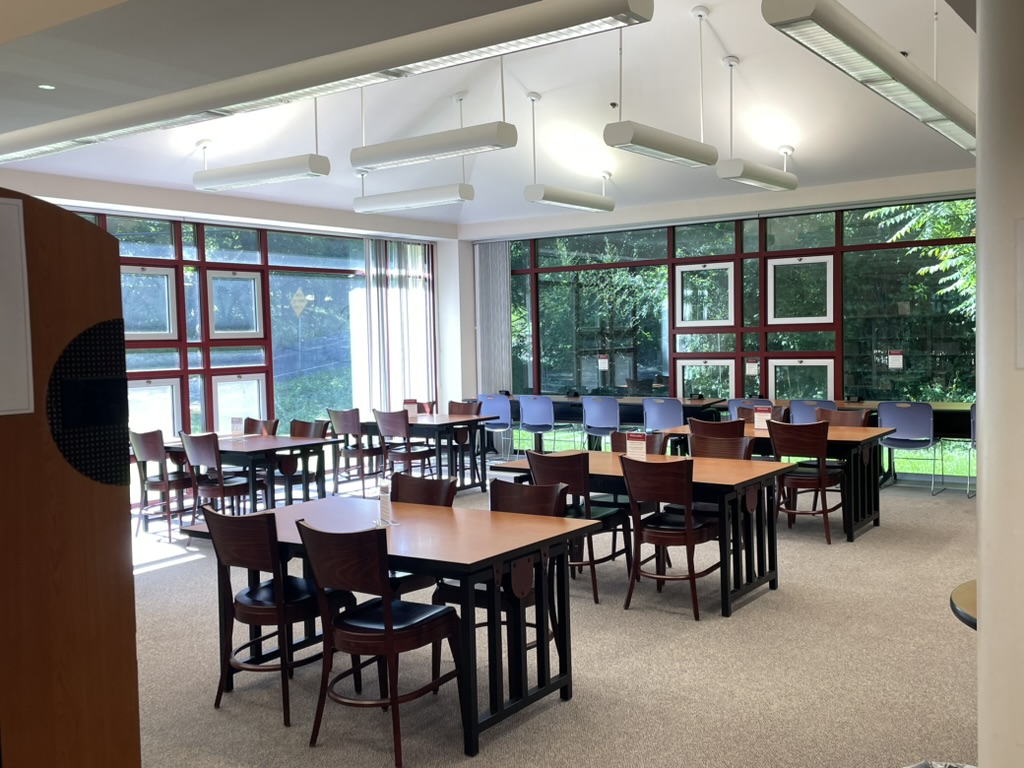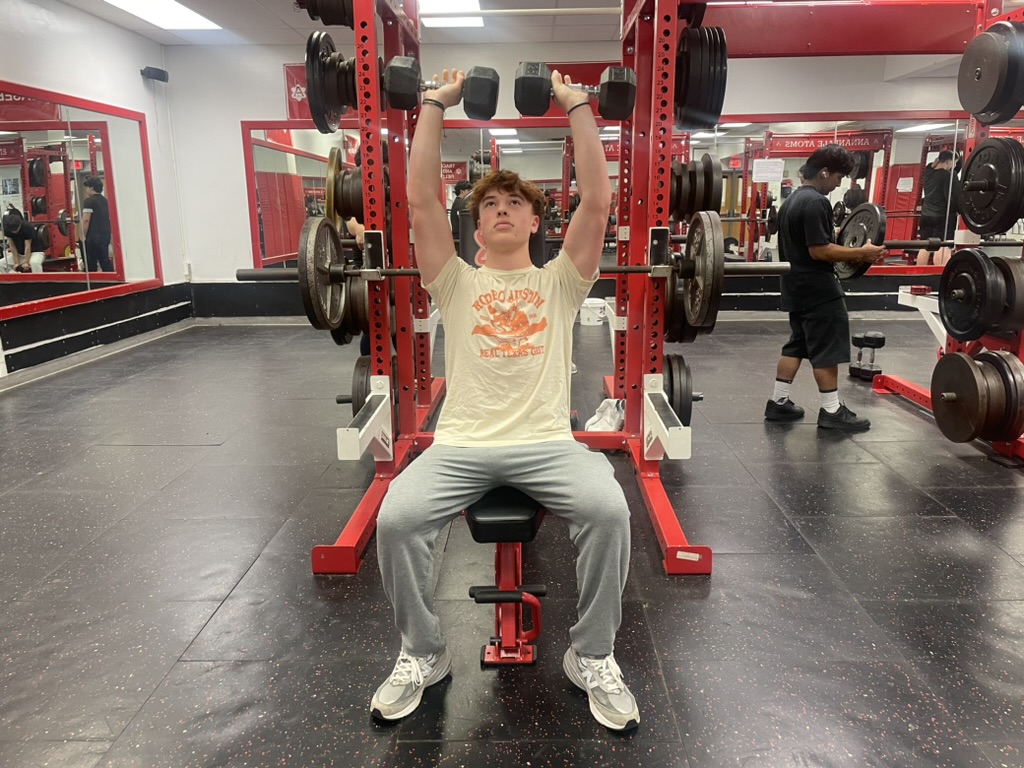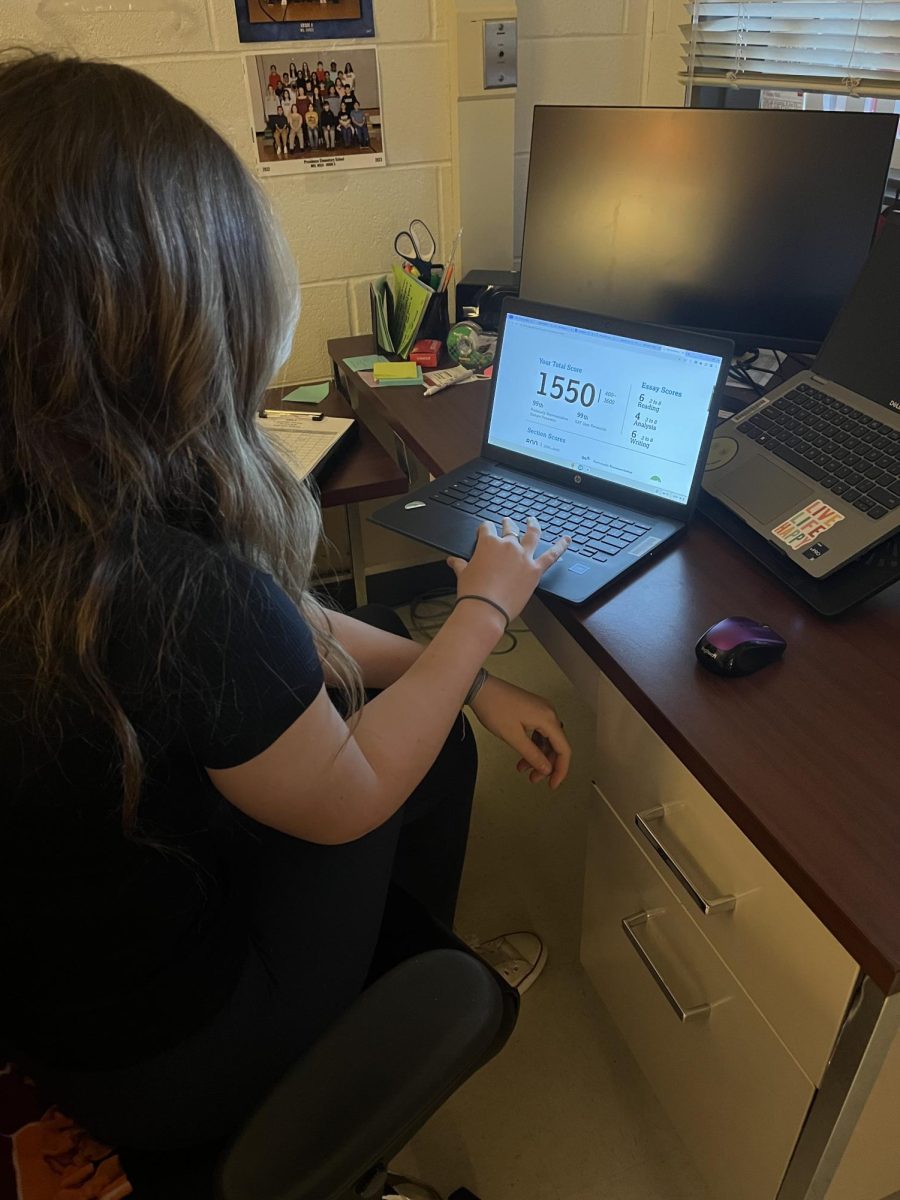It’s 8:10, twenty minutes before my first class and I’m greeted by a usual sight; a myriad of students polluting the building as they try to get a few more minutes of what TJ students know as the coveted treasure: sleep. Backpacks, instruments, books, and sports equipment clutter the halls and tops of lockers; the library is close to reaching its maximum capacity as students race to get a computer or find space among the several tables available to them. For many, this image seems more like a figment of someone’s imagination, how is there a school that allows for such chaos?
But at TJ, it’s reality. If I had to use one word to describe our classes, it would be intense. This year I’m taking APUSH (AP US History), physics–the pain of many juniors’ existence–AP French, AP BC Calculus, Astronomy, Neuropsychology and American Literature. APUSH and Literature are taught as a joint class called HUM II (Humanities). I usually have two hours of homework a night, but the number varies. [Academic] requirements include completing a senior research tech lab (there are 13 to choose from—I will be in the astronomy one next year) and taking math up to at least Calculus.
No class is ever the same! Teachers are always trying to come up with new, innovative ways to address the content of their class and something TJ prides itself on is the great teacher-student relationship. Whatever you need, you can be assured your teachers will be there to help you succeed.
Some interesting assets of our schedule include JLC, lunch and 8th period. JLC occurs on Thursday and school starts at 9 instead of 8:30. Teachers have the time to discuss and students have an extra half hour to do whatever they need. As for lunch, the whole school population eats at the same time wherever it wants on campus. This permits teachers and students to get together to discuss assignments, for students (and teachers alike) to socialize and a common time for students to do anything school-related together. Eighth period occurs five times a week, where each block is 45 minutes. In order to take part in eighth period, students sign up for activities on the TJ intranet they want to participate. Some of the typical activities include National Honor Society meetings or study halls, and then there are the more unique activities like Book Buddies, guest speakers (who never fail to impress), ball dancing lessons, Paleontology club etc. First, all applicants take a test which tests students’ various skills such as math, reading and comprehension, and writing. If applicants score within a certain percentile, they then fill out a Student Information Sheet describing themselves, their accomplishments, their interests, etc. and have to get two letters of recommendation.
Although TJ has many advantages; great education, exposure to new ideas, the list can go on and on, there is also a share of disadvantages, the biggest one being stress!
There are some days where I have so much on my plate, that I get very minimal sleep. That brings up another disadvantage: a lack of time. Something I’ve always loved to do is sing and make music, which I still do as often as I can. But being at TJ has made it harder to find time to do those things.













